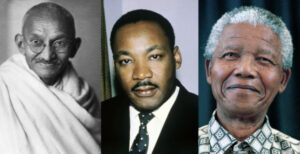
In July of this year, Ursula von der Leyen became the first woman nominated to the presidency of the European Commission. On November 1st, she and all her newly-confirmed commissioners were to officially take office and become the new European Commission. However, much like Brexit, this change will most likely not come about on November 1st as scheduled. So, what has happened to von der Leyen’s Commission? And what makes the actions that the European Parliament is taking so unprecedented?
Ursula von der Leyen wasn’t her party’s first choice for the presidency of the European Commission. In fact, her candidacy was somewhat of a shock to everyone, including herself. When nominating a president for the European Commission, the parties of the European Parliament each put forward their own top candidate, and traditionally the largest party’s candidate is chosen by the European Council to be the official nominee, in a process known as Spitzenkandidat. The idea of Spitzenkandidat is one that is widely contested among European officials, with many national leaders arguing that it isn’t a truly democratic system and that the European Council, made up of the heads of government of each EU member state, aren’t beholden to it. It is also a fairly recently implemented system, one that has only worked in 2014 with the nomination of Jean-Claude Juncker.
While attempting to nominate the next president of the European Commission, the European People’s Party (the largest party in the European Parliament and von der Leyen’s party) put forward a German man named Manfred Weber. From the get-go, it was clear that Weber’s candidacy would be tough. Despite serving as the leader of the EPP in the European Parliament and having plenty of political experience at the EU level, Weber had no experience as a senior executive in public office. He also did not speak French, which traditionally the president of the Commission has been able to do. He was unable to rally as much of the European Parliament behind him as Juncker did, a move which might have saved him. The idea of the Spitzenkandidat was close to falling apart, and the nomination of a weaker candidate like Weber sent it over the edge. One national leader on the European Council was particularly opposed to the idea of Weber as Commission President and the Spitzenkandidat in general, and that was French President Emmanuel Macron. He was very vocal about his disapproval of Weber, a move that may have hurt him and Ursula von der Leyen earlier this week. Weber’s candidacy failed, and so did the candidacies of the other Spitzenkandidats of the remaining parties in the European Parliament, leaving the choice up to the European Council, who chose Germany’s Ursula von der Leyen.
After officially being confirmed by the European Parliament, Ursula von der Leyen’s next steps were to get each country in the EU to send her nominees for her Commission, where each member of the EU is represented by a Commissioner that is in charge of a specific portfolio, like agriculture or the economy. She then picks from the names sent to her, and presents her official Commission to the European Parliament, who conducts a series of confirmation hearings for each of the 26 members (one for each member state, minus the member state of the president, and the UK due to Brexit). Usually this process goes quite smoothly, but von der Leyen’s Commission has been having a tough time. So far, the European Parliament has already rejected three of her nominees – the nominee from Hungary, the nominee from Romania, and most recently, the nominee from France. Von der Leyen cannot take office until all of her nominees are confirmed, and she has to repeat the entire process of having the governments of Hungary, Romania, and France send her their nominees and having them confirmed by Parliament again. The new Commission should be taking office on November 1st, but the blow of losing not one but three candidates will likely push that back. Hungary has yet to name a new nominee, and recent events in Romania have left them without a government, so it might be a while before that can happen.
The biggest shock and perhaps the most personal was the rejection of French nominee Sylvie Goulard. Goulard was a personal pick by Emmanuel Macron and had briefly served as one of his ministers before having to step down due to financial misconduct allegations. It was well known that Macron had personally pushed for Goulard’s nomination, so her candidacy and subsequent failure has become intrinsically linked with his name. She was also a close friend of von der Leyen’s and would have been a valuable ally for the president within the Commission. So, why did she fail? Surprisingly, much of the resistance to Goulard came from von der Leyen’s own party, which Manfred Weber still acts as leader of. Many see Goulard’s rejection as a direct reaction by the EPP and Weber for Macron’s blocking of Weber’s presidency, which would be a truly unprecedented move on the European stage. Macron has truly become a political powerhouse in the EU, especially with Angela Merkel in her final term, and it seems that many in the European Parliament were not happy with how much influence he had been able to have over both the position of the presidency of the Commission and the European Central Bank. With Goulard being such a close ally of his, the MEPs saw their chance to finally strike back.
On top of all of her ties to Macron, Goulard also had many problems of her own. She was unable to retain a position at the national level as French defense minister, so a major line of questioning centered around what qualified her to serve at an international level, which she was unable to answer to a satisfactory degree. She was generally unpersuasive during her hearings and was unable to distance herself from the financial scandal that had forced her to step down from office in France, as well as another story involving being overpaid for doing almost no work at a U.S. think-tank.
So what really stopped Goulard and von der Leyen? Was it really Macron’s involvement, or rather just a general lack of anything impressive from Goulard? Macron has done his best to distance himself from the story, despite every news outlet citing him in Goulard’s rejection. Unfortunately for Macron, it seems that Goulard’s rejection will go down as being his fault, despite Goulard having plenty of faults of her own.
Anissa Weisel



